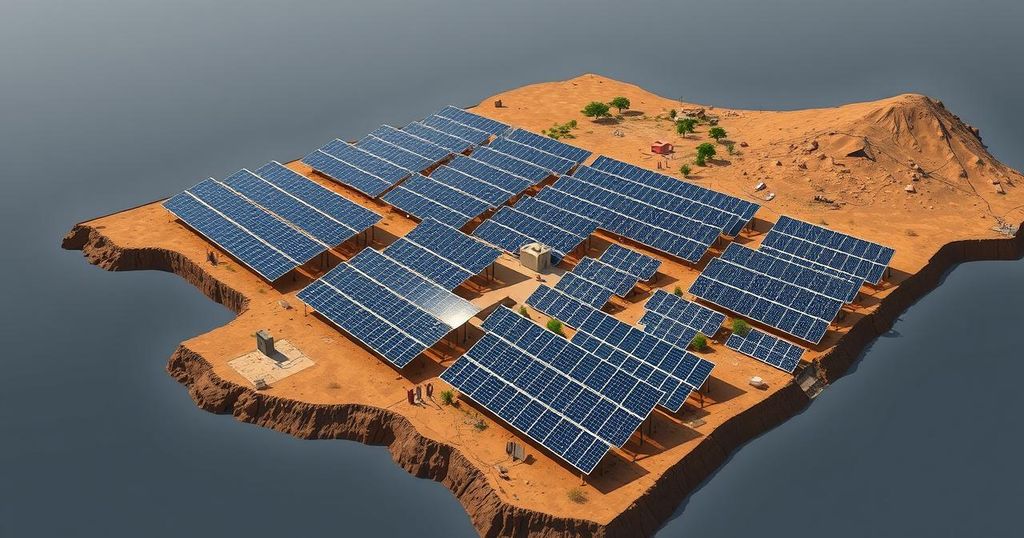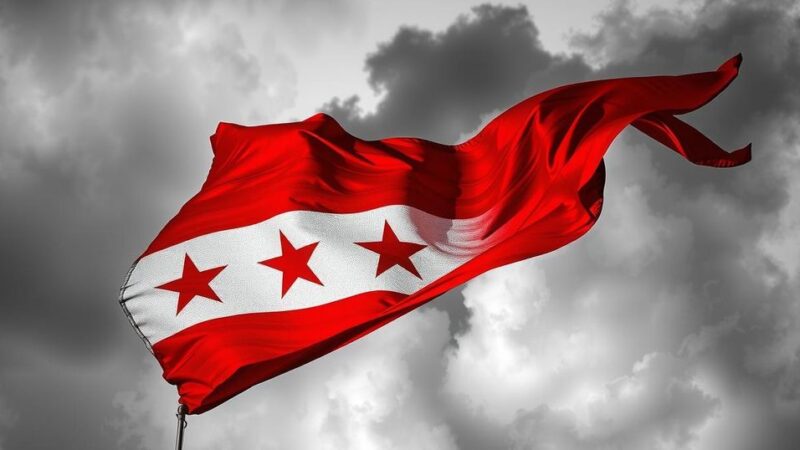Egypt has launched a solar power project in Djibouti, enhancing regional ties and providing alternative energy sources as Djibouti aims to reduce its reliance on Ethiopia. The initiative will establish a solar power facility funded by Egypt while also training local technicians, pointing to a strategic economic collaboration amidst underlying regional tensions over Nile water rights.
Egypt has strengthened its ties with Djibouti through a newly established solar power project aimed at providing Djibouti with alternative energy sources while reducing its dependency on Ethiopia, a regional adversary of Egypt. This initiative involves the construction of a solar power facility in the desert regions of Djibouti, anticipated to expand to a capacity of 300 kilowatts in the future. The financing and operational training of Djiboutian technicians will be provided by Egypt through this collaborative effort. The agreement was signed virtually by Egypt’s Energy Minister, Mahmoud Essmat, and Djibouti’s Minister, Yonis Ali Gued, who focused on economic aspirations without delving into the political ramifications that may ripple across the Horn of Africa. The agreement entails the provision and installation of solar panels specifically near the village of Omar Jaggaa. Alexis Mohamed, an adviser to President Ismail Omar Guelleh, emphasized that this partnership signifies a step towards mutual progress, aligning with the President’s commitment to prioritizing energy for the nation’s development. The growing relationship between Djibouti and Egypt has sparked analyses regarding the dynamics of the broader Horn of Africa, where tensions persist between Ethiopia and Egypt over Nile water rights and regional security issues. Formerly largely allied with Ethiopia, Djibouti’s shift signals a potential change in regional alliances. Historically, Djibouti has maintained robust trade relations with Ethiopia, relying heavily on its ports for imports, and approximately 60 percent of Djibouti’s power needs are satisfied through electricity supplied by Ethiopia. Notably, amid rising tensions concerning access to sea routes, Djibouti extended invitations to Ethiopia to establish a new port in its territory, although this proposal went unanswered as Ethiopia seeks alternative maritime routes. Crucially, an investment opportunity arose recently with the completion of a 283-kilometer transmission line funded by the African Development Bank (AfDB), facilitating electricity transfers from Ethiopia to Djibouti, adding further intricacy to their energy dynamics. Djibouti’s electricity demand is expected to escalate, driven by a surge in port business and aspirations to harness renewable energy, underpinning its search for solar and geothermal investments. At present, around 65 percent of Djibouti’s population has access to electricity, a figure projected to rise to 72 percent with the current investments, enhancing the region’s energy landscape after the activation of the solar power project.
The context surrounding Egypt’s solar project in Djibouti highlights significant geopolitical nuances within the Horn of Africa. Historically, Djibouti has been a trade partner with Ethiopia, which serves as a critical logistical hub for Ethiopian imports. Meanwhile, tensions have escalated between Egypt and Ethiopia over Nile water resources, particularly with Ethiopia’s Grand Ethiopian Renaissance Dam project. Egypt’s initiative to foster relations with Djibouti through renewable energy represents a strategic maneuver to cultivate allies in a region characterized by shifting loyalties and alliances.
In conclusion, Egypt’s solar power project in Djibouti exemplifies a strategic effort to establish alliances in the Horn of Africa amidst ongoing tensions with Ethiopia. By providing vital energy resources to Djibouti, Egypt not only enhances its regional influence but also shifts the dynamics of energy dependency. As Djibouti seeks to diversify its energy sources through renewable options, the implications of this partnership extend beyond bilateral relations, impacting the broader geopolitical landscape.
Original Source: www.theeastafrican.co.ke







